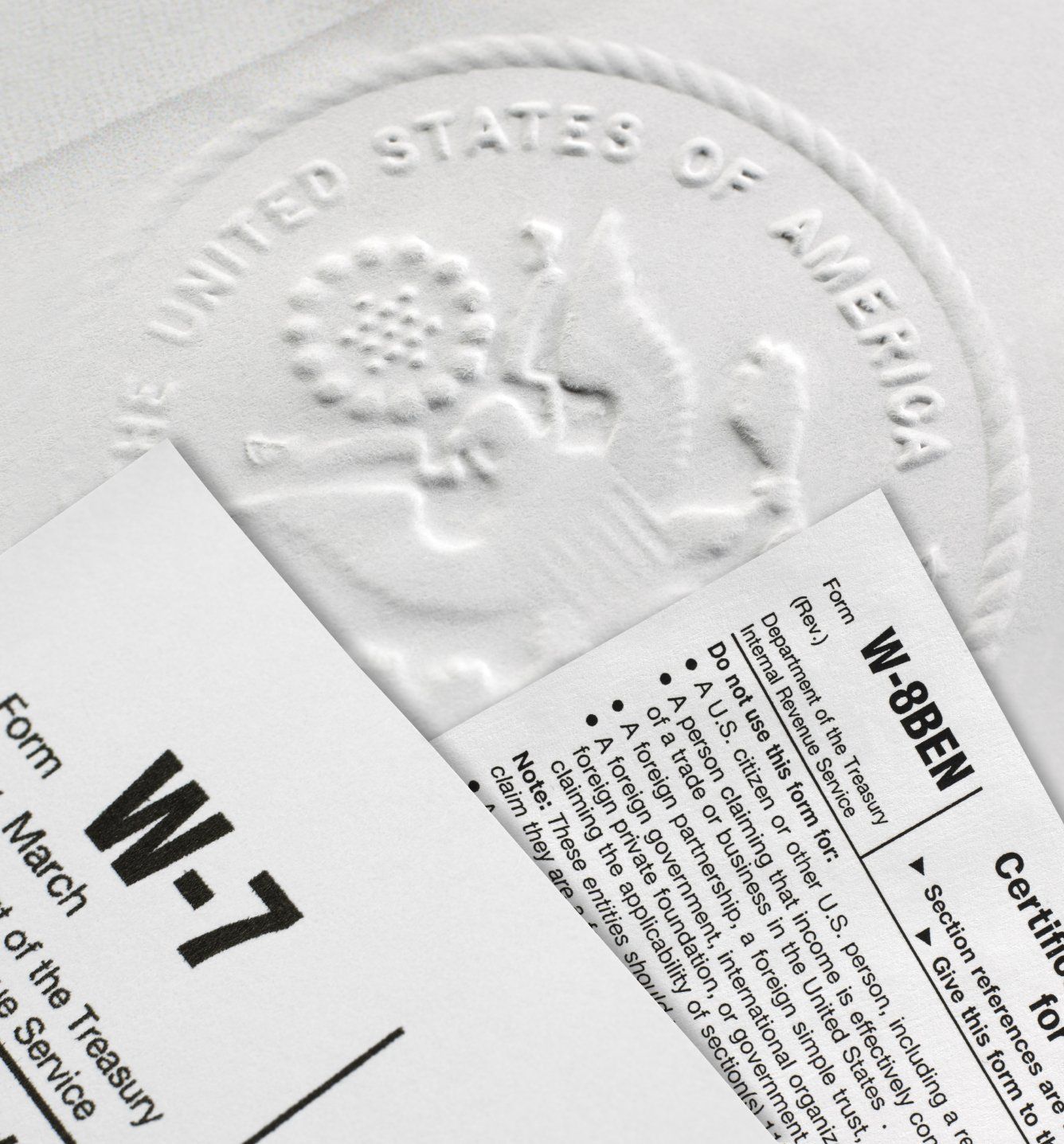The Importance of Rolling Over Your Old 401(k) into Your Own Personal IRA
Michael Reyes • June 10, 2024
If you've changed jobs or retired, you may have left behind one or more 401(k) accounts with previous employers.

While it might seem convenient to leave them as they are, rolling over your old 401(k) into a personal Individual Retirement Account (IRA) offers several significant benefits that can enhance your financial future. Here are key reasons why you should consider this strategic move:
1. Greater Investment Choices
401(k) plans typically offer a limited selection of investment options, often restricted to a handful of mutual funds or company stock. In contrast, IRAs provide access to a broader range of investment opportunities, including individual stocks, bonds, ETFs, and a wide variety of mutual funds. This expanded choice allows you to tailor your investment strategy more closely to your retirement goals and risk tolerance.
2. Better Control Over Your Retirement Savings
By rolling over your 401(k) into an IRA, you gain more control over your retirement savings. IRAs often come with lower fees compared to 401(k) plans, which can have high administrative and management costs that erode your investment returns over time. With an IRA, you have the freedom to choose providers and investment vehicles that align with your cost preferences and investment style.
3. Simplified Management
Managing multiple retirement accounts can be cumbersome and confusing. Consolidating your old 401(k) into a single IRA simplifies your financial management, making it easier to track your progress, adjust your investment strategy, and plan for required minimum distributions (RMDs) once you reach retirement age. A single statement and point of contact can streamline your administrative tasks and reduce the risk of oversight.
4. Enhanced Retirement Planning
An IRA can offer superior tools and services for retirement planning. Many IRA providers offer robust online platforms, financial planning tools, and access to professional advice that can help you make informed decisions. These resources can be invaluable in creating a comprehensive retirement plan that considers all aspects of your financial situation, from asset allocation to tax strategies.
5. Potential for Tax Advantages
Rolling over your 401(k) into a traditional IRA allows you to maintain the tax-deferred status of your retirement savings, meaning you won’t owe taxes on the transferred amount at the time of the rollover. Alternatively, if you choose to roll over into a Roth IRA, you’ll pay taxes on the rolled-over amount now but enjoy tax-free withdrawals in retirement. This flexibility can be advantageous depending on your current tax bracket and future tax considerations.
6. Protection from Required Minimum Distributions
Unlike 401(k) plans, Roth IRAs are not subject to required minimum distributions (RMDs) during the account holder's lifetime. If you roll your 401(k) into a Roth IRA, you can keep your money invested for as long as you wish, providing greater flexibility in your retirement planning and the potential for continued tax-free growth.
Conclusion
Rolling over your old 401(k) into a personal IRA can provide numerous advantages, including more investment options, better control over your savings, simplified account management, enhanced retirement planning tools, potential tax benefits, and protection from RMDs. Taking this step can help you optimize your retirement strategy, ensuring that your hard-earned money works harder for you in the years to come. If you’re unsure about the rollover process or how to best manage your retirement savings, consulting with a financial advisor can provide personalized guidance tailored to your specific needs and goals.

If you're planning for retirement or looking for a reliable way to grow your savings, here are some key advantages of considering a Fixed Index Annuity: 1. Growth Potential Linked to Market Performance FIAs offer the opportunity for growth based on the performance of a stock market index, such as the S&P 500. While your principal isn't directly invested in the market, the interest credited to your annuity can increase when the index performs well, allowing for higher returns compared to traditional fixed annuities. 2. Principal Protection One of the most attractive features of an FIA is the protection of your principal. Even if the market index experiences negative performance, your initial investment and any previously credited interest are protected. This ensures that you won’t lose money due to market downturns, providing peace of mind for conservative investors. 3. Tax-Deferred Growth Like other types of annuities, FIAs offer tax-deferred growth. This means you won't owe taxes on the earnings within your annuity until you start taking withdrawals. Tax deferral can help your investment grow more efficiently over time, as you’re able to reinvest what would have been paid in taxes. 4. Lifetime Income Options FIAs can provide guaranteed lifetime income, which can be a valuable feature for retirees looking to ensure they don't outlive their savings. You can choose from various payout options, including a lump sum, periodic payments, or lifetime income streams, depending on your financial needs and goals. 5. Inflation Protection Some FIAs offer optional riders that can help protect against inflation. These riders allow your income payments to increase over time, helping to maintain your purchasing power as the cost of living rises. 6. Flexibility and Customization FIAs come with various features and options that can be tailored to meet your specific needs. For example, you can choose different crediting methods, participation rates, and cap rates, allowing you to customize the annuity to align with your risk tolerance and financial objectives. Conclusion A Fixed Index Annuity offers a compelling mix of growth potential, principal protection, tax-deferred growth, and flexible income options, making it an attractive choice for those planning for retirement or seeking stable growth with lower risk. By providing market-linked returns without the risk of losing principal, FIAs offer a balanced approach to growing and protecting your savings. Proper consultation can help determine if an FIA fits your overall retirement strategy and financial goals.

Cash-accumulating life insurance policies, such as Index Universal Life (IUL), offer a versatile solution that can serve as both a life insurance policy and a wealth-building vehicle. Here are some key advantages of IUL policies: 1. Death Benefit Protection An IUL policy provides a death benefit to your beneficiaries, ensuring financial support for your loved ones in the event of your passing. This benefit can cover various needs, such as paying off debts, covering living expenses, or funding education costs. 2. Cash Value Accumulation One of the standout features of IUL policies is the ability to accumulate cash value over time. A portion of your premium payments goes into a cash value account, which can grow based on the performance of a chosen stock market index (e.g., the S&P 500). This allows your policy to build value while still providing essential insurance coverage. 3. Tax Advantages IUL policies offer several tax benefits: Tax-Deferred Growth: The cash value within the policy grows on a tax-deferred basis, meaning you won't pay taxes on the gains as they accumulate. Tax-Free Withdrawals and Loans: You can access the cash value through policy loans or withdrawals, often without incurring taxes, provided the policy is structured and managed correctly. 4. Flexibility IUL policies are known for their flexibility in premium payments and death benefit options. You can adjust your premium payments and death benefit amount based on your financial situation and goals, making it easier to adapt to changing needs over time. 5. Market-Linked Growth Potential Unlike traditional whole life insurance policies, IUL policies offer the potential for higher returns linked to market performance. Your cash value can increase based on the performance of a selected index, though it is important to note that these policies often come with participation rates and caps that limit the maximum returns. 6. Downside Protection While IUL policies allow you to benefit from market gains, they also offer downside protection. These policies typically have a guaranteed minimum interest rate, ensuring that your cash value won't decrease due to poor market performance, thus protecting your investment from market volatility. Conclusion Index Universal Life (IUL) policies combine the benefits of life insurance with the potential for cash value growth, offering a versatile tool for both protection and wealth accumulation. The tax advantages, market-linked growth potential, flexibility, and downside protection make IUL policies an attractive option for those looking to secure their financial future. Proper consultation can help you determine if an IUL policy aligns with your long-term financial goals and how to best incorporate it into your overall strategy.

Baby Boomers and Generation X, for instance, face different challenges and opportunities when it comes to preparing for their golden years. Understanding these differences can help tailor strategies that best meet each generation’s unique needs. Baby Boomers: Traditionalists in Transition Characteristics: Born between 1946 and 1964 Currently nearing or already in retirement Grew up in a period of economic prosperity and expansion Retirement Planning Approach: Pension Plans: Many Baby Boomers have benefited from employer-sponsored pension plans, which provide a steady income stream in retirement. However, these plans are becoming less common, leading to greater reliance on personal savings and Social Security. Social Security: Baby Boomers are more likely to rely on Social Security as a significant part of their retirement income. Understanding the optimal time to claim benefits is crucial for maximizing this income source. Healthcare Concerns: As this generation ages, healthcare costs and long-term care become increasingly important considerations. Planning for these expenses is essential to avoid depleting retirement savings. Conservative Investing: Many Baby Boomers prefer a more conservative investment approach to protect their accumulated wealth, focusing on preserving capital and generating income through bonds and dividend-paying stocks. Generation X: Balancing Act Characteristics: Born between 1965 and 1980 In the prime of their careers, often juggling work, family, and financial responsibilities Experienced economic volatility and the shift from pensions to defined contribution plans Retirement Planning Approach: 401(k) Plans: Unlike Baby Boomers, Gen Xers are more dependent on 401(k) plans and other defined contribution plans for retirement savings. Maximizing contributions and understanding investment options within these plans are key strategies. Debt Management: Generation X often faces significant financial pressures, including mortgage payments, student loans, and childcare costs. Effective debt management is critical to ensure sufficient savings for retirement. Investment Growth: With more time until retirement, Gen Xers can afford to take a more aggressive investment approach, focusing on growth-oriented assets like stocks to build their retirement nest egg. Work-Life Balance: This generation places a high value on achieving a balance between work and personal life. Retirement planning for Gen X often includes considerations for lifestyle goals, such as travel and early retirement. Key Differences Savings Vehicles: Baby Boomers have benefited from traditional pension plans, while Gen X relies more on 401(k) plans and IRAs. Understanding the nuances of these savings vehicles is critical for effective retirement planning. Risk Tolerance: Baby Boomers generally prefer conservative investments to protect their wealth, whereas Gen Xers, with more time until retirement, may pursue more aggressive growth strategies. Financial Obligations: Generation X faces unique financial burdens, including high levels of debt and family-related expenses, which can impact their ability to save for retirement compared to Baby Boomers. Retirement Goals: Baby Boomers often prioritize security and healthcare, while Gen Xers may focus on achieving a desired lifestyle and maintaining a work-life balance in retirement. Conclusion The distinct characteristics and experiences of Baby Boomers and Generation X shape their respective approaches to retirement planning. Baby Boomers prioritize income stability and healthcare, often relying on pensions and Social Security, while Gen X focuses on maximizing growth through defined contribution plans and managing debt. Tailoring retirement strategies to meet the unique needs of each generation can help ensure a secure and fulfilling retirement. Proper consultation can provide personalized guidance to navigate the complexities of retirement planning, regardless of generational differences.

While diversification typically refers to spreading investments across different asset classes to manage risk, it’s equally important to diversify your investments across different tax buckets. By strategically balancing your portfolio among Taxed-Now, Taxed-Later, and Tax-Never accounts, you can optimize your tax situation, increase financial flexibility, and potentially enhance your overall returns. Here’s how each tax bucket works and the advantages of maintaining a balanced approach. 1. Taxed-Now Accounts Examples: Brokerage accounts, savings accounts, and dividends. How They Work: Investments in Taxed-Now accounts are those where you pay taxes on the income generated (such as interest and dividends) and on capital gains each year. Advantages: Liquidity and Flexibility: Funds in Taxed-Now accounts are readily accessible without the penalties associated with early withdrawal from retirement accounts. This makes them ideal for short-term goals and emergencies. Capital Gains Tax Benefits: Long-term capital gains in these accounts are often taxed at lower rates than ordinary income, providing a tax-efficient way to grow your investments. 2. Taxed-Later Accounts Examples: Traditional IRAs, 401(k)s, and other tax-deferred retirement accounts. How They Work: Contributions to Taxed-Later accounts are typically made with pre-tax dollars, allowing you to defer taxes on the contributions and the earnings until you withdraw the money in retirement. Advantages: Immediate Tax Benefits: Contributions can reduce your taxable income in the year they are made, potentially lowering your current tax bill. Tax-Deferred Growth: Investments can grow tax-deferred, allowing for potentially higher compounded growth over time since you’re not paying taxes on earnings each year. 3. Tax-Never Accounts Examples: Roth IRAs, Roth 401(k)s, and Health Savings Accounts (HSAs). How They Work: Contributions to Tax-Never accounts are made with after-tax dollars, but qualified withdrawals (including earnings) are tax-free. Advantages: Tax-Free Withdrawals: In retirement, withdrawals from Roth accounts are tax-free, providing a significant tax advantage, especially if you expect to be in a higher tax bracket. No Required Minimum Distributions (RMDs): Roth IRAs, in particular, do not have RMDs, allowing your money to continue growing tax-free for as long as you like. The Benefits of Balancing Across Tax Buckets Tax Diversification: By spreading your investments across these three tax buckets, you create a tax-diversified portfolio. This can help manage your tax liability both now and in retirement, potentially reducing the amount of taxes you pay over your lifetime. Flexibility in Retirement: Having a mix of accounts allows you to strategically withdraw funds in retirement. For example, you can draw from Taxed-Now accounts to manage taxable income, use Taxed-Later accounts when needed, and rely on Tax-Never accounts for tax-free income. Adaptability to Tax Law Changes: Tax laws can and do change. Having a diversified tax strategy means you’re better positioned to adapt to new tax rules and take advantage of any beneficial changes. Optimized Withdrawal Strategies: By planning withdrawals from different buckets, you can potentially minimize the tax impact each year, allowing for more efficient management of your retirement funds. Conclusion Balancing your portfolio across Taxed-Now, Taxed-Later, and Tax-Never accounts is a smart strategy that provides tax diversification, enhances financial flexibility, and can lead to more efficient retirement planning. This approach not only helps in managing your current tax liability but also prepares you for a more tax-efficient retirement. Proper consultation can help you develop a personalized strategy to make the most of each tax bucket, ensuring your investments align with your long-term financial goals.

In the intricate world of business partnerships and ownership, planning for unforeseen events is not just prudent—it's imperative. Buy-sell life insurance agreements, often referred to simply as buy-sell agreements, offer a powerful tool for businesses to protect themselves and their stakeholders in the face of unexpected events. In this article, we'll delve into the intricacies and importance of buy-sell life insurance agreements for businesses of all sizes. What is a Buy-Sell Agreement? A buy-sell agreement is a legally binding contract between co-owners of a business that governs what happens in the event that one owner experiences a life-altering event, such as death or disability. These agreements establish a predetermined process for the sale or transfer of that owner's interest in the business. Types of Buy-Sell Agreements There are several types of buy-sell agreements, but they generally fall into two categories: Cross-Purchase Agreement: In this type of agreement, each business owner (or partner) buys a life insurance policy on the life of every other owner. If one owner dies, the proceeds from the life insurance policy are used to buy the deceased owner's share of the business from their estate or beneficiaries. Entity or Stock Redemption Agreement: In this arrangement, the business entity itself purchases a life insurance policy on the life of each owner. When an owner passes away, the business entity buys back the deceased owner's shares at a predetermined price, funded by the life insurance proceeds. The Importance of Buy-Sell Life Insurance Agreements Business Continuity: A sudden death or disability of a business owner can create chaos and uncertainty within a company. A buy-sell agreement ensures that the business can continue operating smoothly, preventing disruptions. Fair Value Determination: The agreement specifies how the value of the business will be determined upon the triggering event. This can prevent disputes and ensure a fair price for the departing owner's interest. Financial Security: Buy-sell agreements funded by life insurance provide the surviving owners with the necessary funds to buy out the deceased owner's share without draining the company's resources. Estate Planning: These agreements can play a crucial role in estate planning, helping business owners protect their family's financial future by providing a guaranteed buyer for their business interest. Creating a Buy-Sell Agreement Drafting a buy-sell agreement is a collaborative process that involves careful consideration of various factors, including: Triggering Events: Clearly define the events that will trigger the buy-sell agreement, such as death, disability, retirement, or voluntary departure. Valuation Methods: Determine how the business will be valued when a triggering event occurs. Common methods include using a fixed price, market value, or appraisal. Funding Mechanisms: Decide how the buy-sell agreement will be funded. Often, life insurance policies are used to provide the necessary capital. Rights and Obligations: Outline the rights and obligations of each party involved, including the selling owner, surviving owners, and the business entity. Dispute Resolution: Specify the process for resolving disputes that may arise during the execution of the agreement. Regular Review and Updates Once established, it's essential to review and update the buy-sell agreement periodically to ensure that it remains aligned with the business's goals, financial status, and ownership structure. As businesses evolve, the terms of the agreement may need to be adjusted accordingly. In conclusion, buy-sell life insurance agreements are a critical element of sound business planning. They provide financial security, protect business continuity, and ensure a smooth transition of ownership in times of crisis. For businesses with multiple owners or partners, creating a well-crafted buy-sell agreement can be the difference between chaos and continuity when unexpected events occur.

In the world of business, the concept of insurance often centers on protecting tangible assets like property, inventory, and equipment. However, one critical asset often gets overlooked—the key people who drive a company's success. Key-man life insurance is a financial safeguard that ensures a company can weather the storm when a vital leader or employee is unexpectedly absent. In this article, we explore the importance of key-man life insurance and how it can secure the future of your business. Who Is a Key Person? Key persons, often referred to as "key employees" or "key executives," are individuals whose contributions significantly impact the financial stability and success of a business. These could be founders, top executives, sales superstars, or technical geniuses—essentially, anyone whose absence could result in a substantial financial loss. The Role of Key-Man Life Insurance Key-man life insurance is a policy that a business takes out on the life of a key employee. Here's why it's essential: Financial Protection: When a key person passes away unexpectedly, it can create a vacuum in the organization. Key-man life insurance provides financial compensation to the company, helping it cover lost profits, recruitment costs, and potential disruptions to business operations. Debt Repayment: In many cases, businesses have outstanding loans or lines of credit. Key-man life insurance can be used to repay these debts, ensuring that the company's financial obligations are met. Succession Planning: It provides time and resources to facilitate the transition of key responsibilities to a new employee or leader. This can prevent a leadership crisis during a critical period. Shareholder Protection: If the key person is a shareholder, the insurance proceeds can be used to buy back their shares from their estate, ensuring that control remains with the existing shareholders. The Cost of Losing a Key Person The loss of a key employee can have severe financial consequences for a company: Loss of Revenue: Key employees often have direct relationships with significant clients or customers. Losing these connections can lead to a drop in revenue. Disrupted Operations: The departure of a key person can disrupt the workflow and morale of the team, leading to inefficiencies and decreased productivity. Recruitment Costs: Finding a suitable replacement for a key person can be time-consuming and expensive. Recruitment costs, training, and onboarding expenses can add up quickly. Competitive Disadvantage: A company without its key talent may struggle to compete effectively in the market, potentially losing market share to competitors. How to Get Key-Man Life Insurance To obtain key-man life insurance, follow these steps: Identify Key Persons: Determine which employees have a critical impact on your business. Choose Coverage Amount: Decide on the appropriate coverage amount, considering factors like the employee's salary, contributions to revenue, and potential recruitment and training costs. Select a Policy: Work with an insurance agent or broker to choose a suitable policy type, such as term life or whole life insurance. Name the Company as the Beneficiary: The company should be the beneficiary of the policy to receive the proceeds. Regularly Review and Update: As your business evolves, periodically review your key-man insurance policies to ensure they remain aligned with your company's needs. In conclusion, key-man life insurance is a strategic investment that safeguards your business's financial future in the event of a key employee's unexpected absence. By recognizing the contributions of your key persons and proactively protecting your business against potential risks, you can ensure business continuity and long-term success.
